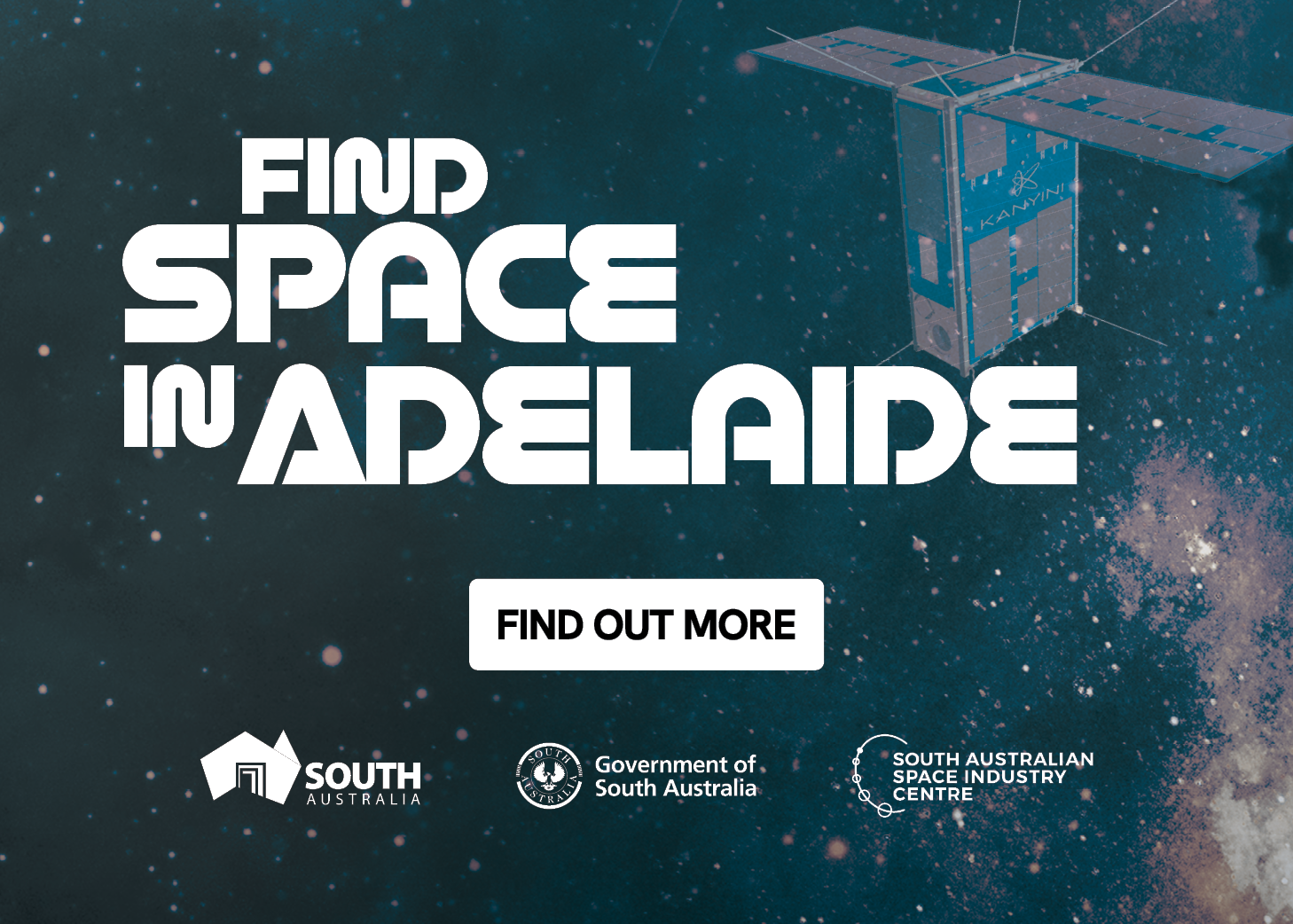In a difficult time for the space industry, South Australia is continuing to forge ahead as the national leader.
South Australian Space Industry Centre Chief Executive Richard Price said the space industry continues to be a key priority, with the state at the forefront of the development of exciting new technology.
“South Australia’s commitment to the space industry is unwavering,” said Richard. “We are focused on growing and accelerating local space research and innovation into real world commercial technologies, developing local space manufacturing capability for small satellites, along with education and outreach activities that inspire and attract future talent to the sector.
“At a Federal level there are new priorities for industry investment, but South Australia is still very much the space to be and we are leading the way across a range of dual use capabilities.”
One such local company with world-leading expertise is Fleet Space Technologies, recently awarded a $4m contract with the Australian Space Agency for its Moon to Mars: Demonstrator program. The funding will enable Fleet Space to build the geophysical devices to enable resource exploration for future lunar and Martian geophysical exploration missions.
While Fleet Space are looking to the sky for their work, in a world-first, Silentium Defence are exploring how their usually ground based passive radar technology can be integrated with small satellite technology to improve quality and cost efficiency of earth observations from low earth orbit.
Working in partnership with US-based Duke University and the Defense Advanced Research Projects Agency (DARPA), if successful, the use of Silentium’s proven passive radar technology in this new Earth Observation capacity will enable faster, more accurate storm predictions, real-time tracking of bushfire activity and open ocean surveillance, among other uses.
Hex20 is an example of an innovative South Australian smallSat company providing cost-effective platforms, customised hardware, and advanced sensor technologies for the cubeSat and smallSat markets.
Among many recent successes, Hex20 will be building a 3U platform for National Central University, Taiwan to fly an Automatic Identification System (AIS) Payload for tracking ships.
In acknowledgement of the state’s strengths in Earth Observation, Adelaide has recently secured the rights to host the second Advancing Earth Observation Forum, to be held 9-13 September 2024.
“EO satellites and the data they provide have a meaningful impact on the lives of Australians and across a range of industries including agriculture, minerals exploration, climate change management as well as national security.
“From data processing supported by machine learning to developing satellites with advanced sensor packages, South Australia’s expertise spans the full spectrum of EO needs,” said Richard.
The state will launch its own small satellite next year, Kanyini, as part of a collaboration with the SmartSat Cooperative Research Centre (CRC), Inovor Technologies and Myriota. Kanyini will provide vital data to support government decision-making around water use, climate policy and emergency management.
In terms of education and outreach, Richard adds that people’s natural interest in space is an opportunity that must not be forgotten, which is why South Australia is using space to inspire future generations of scientists, engineers and innovators.
Adelaide will host the Kids in Space national final in October, an initiative of the Andy Thomas Space Foundation involving more than 5000 students across Australia. The program is designed to engage students and teachers in STEM education and learning about a career in space.
“Our researchers are also leading the way with world-first technologies being incorporated in new applications through initiatives such as Plants for Space and iLaunch Trailblazer. The message from South Australia is: we’re open for business when it comes to space,” said Richard.
“Our mission remains the same in that we are supporting the endeavours of the Australian Space Agency in growing sovereign capability in an industry that will benefit all of our lives here on Earth.”
Learn more at sasic.sa.gov.au
image The launch of Australia’s first state satellite, Kanyini, will be a game changer for the local space sector













